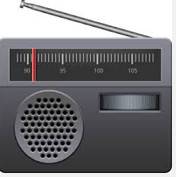You put an FM chip in my what?
At 2014 RadioInk Convergence, Jeff Smulyan, says turning phones into radios is "almost here".
At the 2014 Radio Ink Convergence the conversation about activation of FM chips inside phones continued. Wait... an FM chip where?
Just Androids. And only FM.
For those of you new to the issue, apps can activate the chips to receive FM radio broadcasts directly, like tiny radios. It's the most under-reported media debate outside of radio insiders.
Convergence Key note speaker Jeff Smulyan, Chairman/President/CEO of broadcast conglomerate Emmis Communications - and chip activation advocate - got on stage to pitch the concept (again) and say he no longer believes streaming apps are radio's future.
Emmis purchased a large streaming network back a few years ago, but is now pouring resources into a new company, NextRadio, an app that activates FM chips.
Apparently there is already an FM chip placed in about half of all smart phones when they are manufactured.

Jeff Smulyan, CEO
They just sit quietly in there until an app activates them.
Smulyan argues that history is on the side of chips; as bandwidth is sucked up by the insatiable demand for video and audio streaming, users will experience time lags and price increases, and look for free options.
Given a choice, according to this vision, they will turn to free over-the-airwaves FM broadcasting on their phones - and terrestrial radio will make a comeback.
Since stations hate paying streaming charges, this should be music to their ears.
As both a consumer and media analyst, I like the idea of receiving FM on phones - who wouldn't - but many consumers already have unlimited dataplans.
And chip activation is not, actually, free, either, to the industry.
The wireless industry sees no reason to install more FM chips or partner to allow them to be activated.
So NextRadio had to buy its way in, paying Sprint $45 million for the privilege of chip activation, a cost shared by a consortium that includes a number of radio companies large and small, from Hubbard to Clear Channel. Smulyan has not ruled out revenue sharing as part of the negotiations, which opponents liken to "selling out our financial future."
At Convergence, Smulyan said he determined that paying would be cheaper and less distracting than filing law suits to force the mobile phone industry's hand. He spends a good deal of his time at the top of the wireless food chain trying to negotiate his way into a new industry standard (Sprint customers get free FM, yours do not).
As part of the deal, Sprint pre-installed the NextRadio app in several phones, including Xplus and pre-paid Boost Mobile phones.
The app also has 250,000 downloads so far from users - warp speed or painfully slow, depending on whom you talk to.
Smulyan also makes a public safety argument for chip activation that may get traction with government agencies. Radio provides the most reliable emergency broadcast system during a crisis.
The best case made against paying for chip activation, that it's the wrong issue, is made by opponents within radio industry itself. They say consumers love their apps and expect streaming, and that the radio industry needs to meet these challenges head on. The expensive, herculean task of chip activation at scale, they say, is a distraction of time and resources around a false promise.
When I searched Radio Ink's site for more information, the related story bot was bi-polar in perspective: "Why you should care about the FM chip", "We Don't Need An FM Chip", Smulyan Says Phil Boyce is Wrong, and "NAB CEO Gordon Smith Says Push For the Chip."
One critic pointed out that "my station is already on smart phones" and another that Pandora is streamed, too, it just has a better app.
The content argument makes sense. Radio needs to diversify and beef up its audio content for the on-demand consumer on phones, and create better apps that enable choice. Chip activation promises that the industry will not have to make these painful changes.
As one critic noted, "Forcing FM chip activation won't make consumers want our product more."
I had an FM app on my smart phone at one point (I now have an iphone) and did use it almost every day - to listen to public radio. Content is king.






